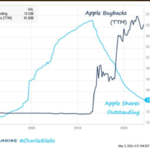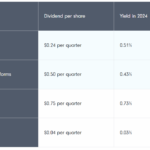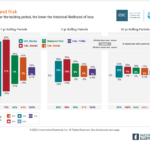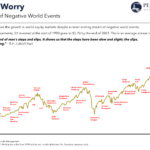Equity mutual funds pool together money from many investors and invest in a group of stocks. This process in theory is supposed reduce risk to investors especially the risk of owing individual stocks which can blow up. However that is not always the case. Mutual funds also have high risks and they are not necessarily the best option for investors to reduce risk or earn higher returns.
Investing in individual stocks is considered to be higher than investing in a mutual fund. At least that is the theory. But in reality stocks have many advantages than mutual funds. Investors able to afford a good amount of money can easily build a portfolio of high-quality stocks and earn better returns than mutual funds while reducing risks.
With that said, the following are some of the advantages of individual stocks over mutual funds:
1)When a mutual funds becomes too large in size, the fund’s ability to invest efficiently deteriorates. As a fund becomes highly popular more and more investors pile in leading to a big bulge in investment assets. In this scenario, the fund may not be flexible and nimble at it was when net assets were much smaller. So investing in such funds is not a wise move.
2)Mutual funds limit the ability of an investor customize their investments. For example, if a customer wants to avoid a certain stock like a Facebook(FB) or Amazon(AMZN) for whatever reason, it is not possible to exclude that firm from a mutual fund. This is because the ultimate control of how investors’ money gets invested is decided by the fund company and not an investor.So an investor loses the freedom to say pick and choose as they wish and instead is at the mercy of the fund company.
3)In terms of tax efficiency, stocks are much better than mutual funds. With a mutual fund, an investor pays taxes on any annual distributions by the funds and again when he sells the funds. So by trying to reduce risks, a fund investor actually increases the definite possibility of paying much higher taxes.In addition, even when a fund loses money an investor may owe taxes.
4)Tax loss harvesting – Mutual funds limit the ability of an invest to harvest losses for tax purposes. A mutual fund manager can harvest losses within a fund, but an investor can only harvest losses when the fund is down. In a rising market this benefit is lost quickly.
5)As mentioned earlier, an investor in a mutual fund completely loses control of their investment. By building a portfolio of stocks an investor can decide to sell a stock which has positive growth and then pay taxes on the capital gains. This power is lost when going with a fund.Some manager running other people’s money decides what to run and what to sell. So in summary, an investor can decide when to sell a stock at a gain and pay capital gain taxes due.Depending on an individual’s tax situation they can decide when they want to realize a gain.
6)Mutual fund investors can be adversely affected by their fellow investors. In a highly volatile market, if investor panic and sell then a fund manager may liquidate stocks at a gain or loss. An investor who wants to simply sit out the volatility can’t do that without enduring the loss caused by other investors. With individual stocks there is no such worry. Mutual funds can be considered as “socialist” type of investment product where an investor ends up paying for the actions of some other persons. When we favor everything in life in a capitalist way, we should seriously think why we need to go for socialism in investing our hard earned money.
7)Trading – A mutual fund such as an open-ended fund can be bought and sold once per day. This limits flexibility. Stocks on the other hand can be bought and sold anytime the market is open.
8)Fees – Many mutual funds charge high fees such as management fees, advisory fees, legal fees, 12-b1 fees to cover marketing expenses and a zillion other fees to effectively wipe out any advantage of owning a fund.When the market is up 5% and total fees add up to 3%, you are only earning a 2% return. This is at least not an awful scenario. The really bad case is when the market is down and the fees continues to be deducted from the funds’ assets. So even when the market is down say 10%, fund fees will be automatically deducted from the fund.
9)Some funds charge loads(fees) upfront or when selling a fund. This reduces the amount that gets to work for an investor. No such problem exists for individual stocks.
10)Income – With individual stocks it is possible to build a customized portfolio of dividend stocks for example and receive cash dividends each quarter to spend or do whatever one wants. This is not possible with a fund. The distribution of dividends or capital gains from a fund depends on the fund company.
Source: The Case Against Mutual Funds by Matthew Young, Young Investments and self opinion.



